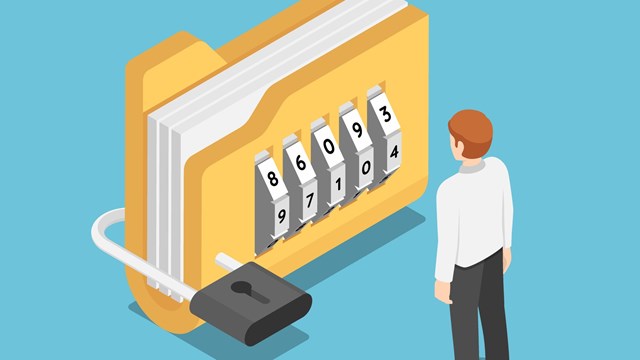One of the benefits of transitioning from renter to homeowner is the knowledge that your space is sacred and belongs only to us. But, when it comes to association living, sometimes unit owners have to give building staff or managers access to their homes for repairs or maintenance, with or without the owner being present. While that may be a less than ideal scenario for some unit owners, it is often a necessity. With the proper communication and expectations, those occasional visits can be less stressful and better understood.
Knowing the Law
Whether maintenance or repair visits are wanted or not, they are protected by the law in most states. In New Jersey, for instance, the state statutes don’t address the issue directly. “There is the New Jersey Condominium Act, but typically if an association is looking for access to a unit, the rules will be outlined in the governing documents, master deed, and bylaws,” explains Stephanie Wiegand, a shareholder attorney with the law firm of Griffin Alexander, P.C., with offices in New Jersey and New York. “That’s where I would primarily go to first see what the rules and regulations are with regards to the association or management having access to a unit, whether it be for general repairs or for emergencies.”
Victoria Simoes, an attorney with the law firm of Hill Wallack in Princeton, New Jersey, agrees. “Unit access is an issue that’s governed by the association’s governing documents. I would think 99% of documents grant the association an easement to access the units to allow for repairs of common elements, or maybe for a DCA [New Jersey Department of Community Affairs] inspection, with reasonable written notice. In an emergency, though, they don’t have to give notice.”
While the regulations for gaining entry to a unit will be spelled out in the community association’s governing documents, often those documents are out of date and don’t address modern circumstances. “Oftentimes we represent condo associations that are already decades old, so we’re not involved in the drafting of the governing documents,” says Wiegand. “Whatever was drafted in there is pretty set and done, unless their documents give the board power to make up certain rules and regulations with regard to access to units or caring for common elements. If they do, then we can put together a resolution for our client and the board can sign off on that.”
While the law and governing documents may detail the cut-and-dry questions pertaining to unit access, ensuring an open line of communication with unit owners remains of vital importance. “Sending notice in writing is always recommended,” says Simoes, “because down the line if an issue comes up, you can prove that you sent notice in writing, especially if it’s a piece of certified mail which gives you proof that the notice was sent, with a reasonable amount of time between the date of receipt of the letter and the date that access is needed, maybe ten to fifteen days. Also, provide the manager’s information in the letter so the owner can reach out to them and say, ‘Okay, it’s fine if you guys want to come in, and I’ll be home at this time.’ The notice is to make sure that lines of communication are open and no funny business is going on.”
Some situations preclude the ability to notify residents in advance, says Wiegand. “If there’s an emergency situation where there is water leaking everywhere and the owner is not home, then somebody needs to go in immediately to prevent damage to the unit and to the common elements.”
Often, it can come down to a matter of judgment. “If somebody has been refusing to clean their dryer vents, there are situations where that would be considered a fire hazard and an emergency,” explains Simoes. “An emergency is a situation where it’s imperative that the association enter the unit to make some sort of repair that is immediately affecting either the common elements or another unit in a negative way.”
Taking precautions when entering in those emergency situations can make all the difference when it comes to avoiding trouble, including potential accusations of impropriety. “Typically,” Wiegand says, “the accusations we get are that a check off the counter is missing, or that somebody, say, took the clock off the wall. We always advise our clients to go in a unit with a third party present, like a plumber or a maintenance person, so you have witnesses to say they were there and they didn’t see anybody take anything.”
To avoid even the hint of impropriety, Matt Hohl of community management firm Associa Chicagoland, notes: “We have these wonderful cell phones with us now that have allow us to take photos and record video, so document as much as possible. Show what’s going on, what the condition is, and report back to not only the unit owner, but also the board, to make sure they’re aware.”
There are liability concerns anytime professionals or board members enter a unit without the owner present. “That's why we always try to protect ourselves by documenting that we're going into the unit,” according to Wiegand. “We want documentation with the reasons we're going in, the time frame that we're going in, and if possible we want it in writing that they're aware we'll be entering the unit when they're not home, because unfortunately accusations of impropriety do occasionally happen.”
An emergency situation does not negate the need for documentation and clear communication. “A situation would never arise in court where the association would be on the hook for entering the unit due to an emergency situation,” Simoes says. “That's covered across the board in the governing documents. But the association should make sure that all of its actions are transparent when doing something like that, reaching out to the unit owners, bringing in third parties when they enter the unit, documenting the process. Photos or video are always good to have.”
Insurance is a must, says Wiegand. The right coverage can protect associations from much of the risk inherent in these situations: general liability insurance, property and casualty insurance, and directors and officers liability insurance, adequately protect associations from most claims relating to these types of issues. “If it's your management company, your maintenance guy, or a contractor coming in for emergency repairs, you should ensure that your contract with them contains some sort of indemnification clause that indemnifies the association if the third party who entered the unit is being accused of damaging property, or being careless, or stealing something,” says Wiegand. “Don't rely on a proposal from a third party. Always have your legal counsel draft up an actual contract before they start doing work.”
When to Stay Out
Situations where the association needs to enter a unit without the owner present happen more often than one might suspect. As important as it is to know when building staff or management can enter a unit, it is equally as important to know when they may not. “They need to be acting in accordance with the governing documents,” according to Simoes. “If the association is trying to enter a unit and it's not an emergency situation and the unit owner hasn't been provided notice, the owner can certainly argue that pursuant to the documents, they were supposed to receive notice.”
One way to avoid the potential difficulties that arise as a result of entering an apartment without the owner is to provide training to management staff to ensure they understand when it is appropriate to do so. At Associa, Hohl says their company’s policies “recommend that building staff always clear it with the site manager before entering a unit, and that they always have somebody with them.”
The Owner’s Responsibility
While managers and board members may face the majority of liability in these situations of unsupervised access, unit owners also may run into a headache or two should they prove inflexible in allowing that access, especially when it comes to emergencies. There are times when the governing documents may have spelled out specific scenarios when access is necessary, including regularly scheduled maintenance like pest control. “Your governing documents may say that unit owners need to allow the association access in order to investigate and remedy certain issues with regard to health and safety, or with regard to the common elements, or with regard to maintenance and repair,” says Wiegand.
Should a unit owner refuse to allow an association access to carry out its statutory or contractual duties, the association may be forced to file a court order for the access it needs. “If a unit owner won't let you in for pest control and there is an infestation,” Simoes says, “then most documents have a provision that says that if damage is caused to the common elements or other units because of a unit owner's negligence or actions, they they're responsible for whatever costs that are associated with remedying that damage.”
Communication: Always the Best Solution
Communication can make a significant difference for both unit owners and association staff and board members. This is of special importance for residents who do not live in their units full time. “We have several communities where there are owners who rent out their units as an investment property,” says Wiegand. “Oftentimes, they'll have tenants in there, and the tenants may know where to send their rent check to, but otherwise the association doesn't have a good address for the owners. Or they have a good address, but the unit owners aren't responding to their mail. It's important that associations make sure their databases of current phone numbers, email addresses, and mailing addresses are kept up to date.”
Tenant occupied units are often addressed in amendments to the association's governing documents. “A lot of associations with a high number of units being used as rental properties in their community actually try to pass amendments with regard to the rules and regulations that surround leasing out a unit,” notes Wiegand. In that instance, it’s necessary to keep current contact information on hand, she says.
Even before unit owners move into their buildings or communities, those owners should be made aware of the policies and protocols for admittance into units, typically in an orientation packet, says Hohl.
The Unthinkable
What if an owner has played by the rules but suspects that a staff or board members has entered their unit inappropriately and without adequate reason? In that case, says Simoes, “it's important for unit owners and board members to know what's in the governing documents so that if a situation arises, the unit owner knows what their rights are as well and can bring it to the attention of the association.”
Certainly one of the best ways to avoid trouble is for everyone to agree on a policy that is in keeping with state law and ensuring that all unit owners understand the need for unit access, including their own responsibility for maintenance and safety for the community as a whole. No one likes the idea of someone entering their residence unattended. But on the other hand if explained properly, it’s also possible to see emergency or maintenance-based entry as a safety net, a back-up for when troubles arise. If everyone works together for the well-being of the community and unit owners as a whole, then issues can be avoided and people can feel confident that their unit and their interests are being protected.
Staff writer Jennifer Welch contributed to this article.







Leave a Comment